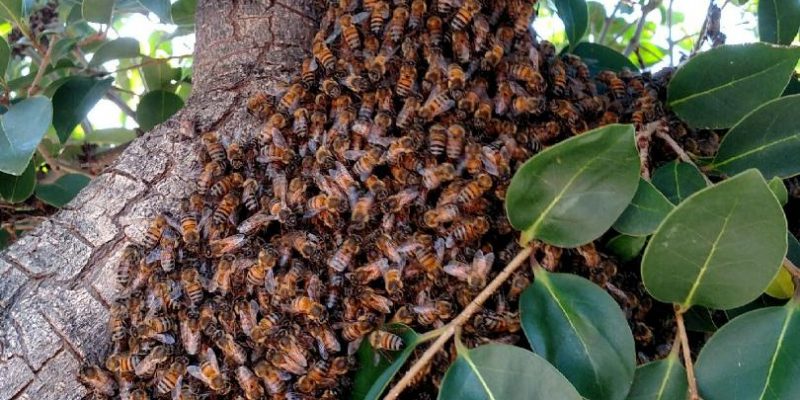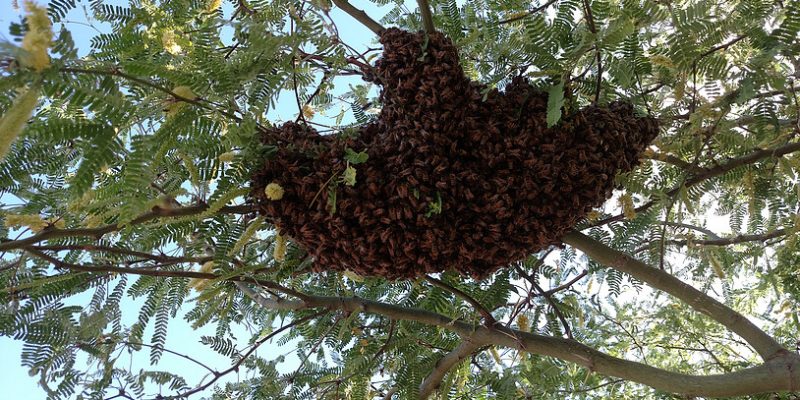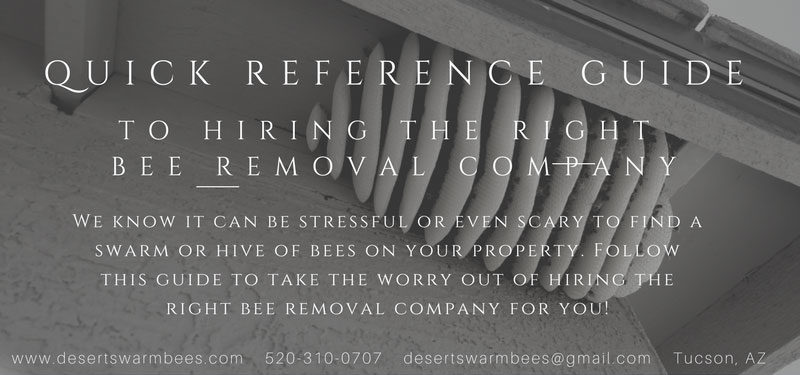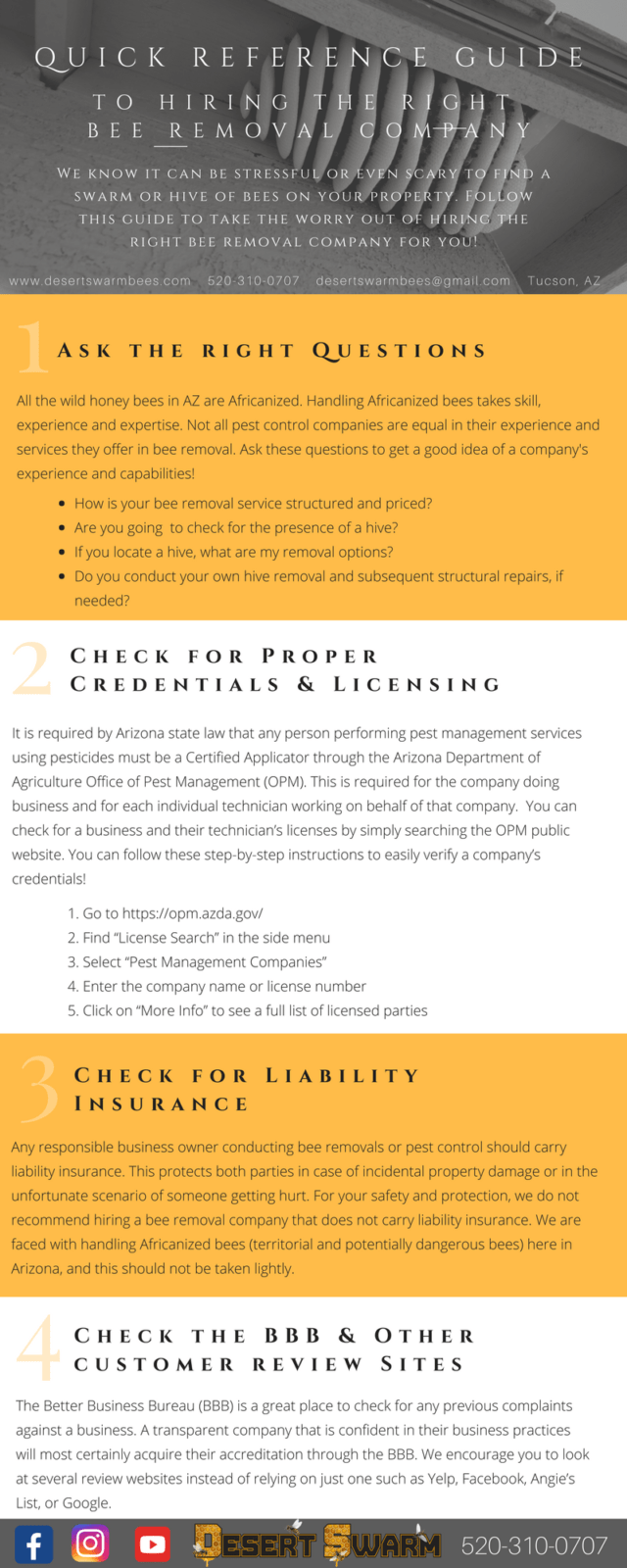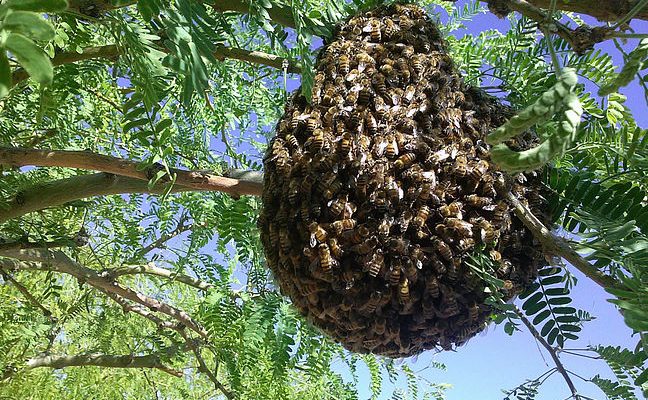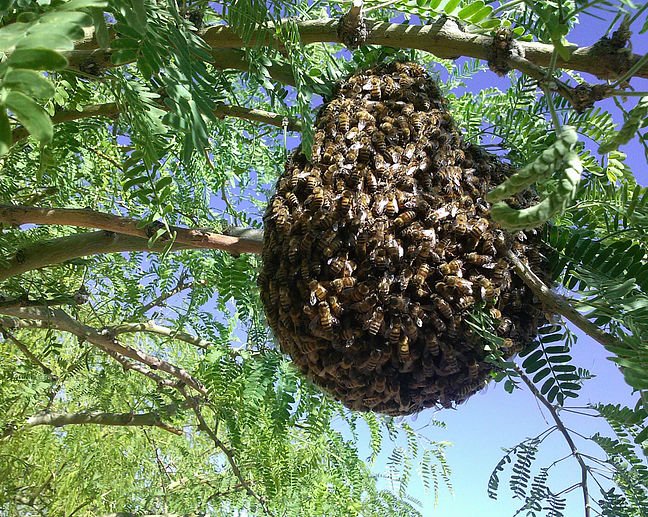Only if it is safe. All wild honey bees in Arizona are Africanized.
by Allison Williams, Co-owner of Desert Swarm Bee Removal LLC
We have responded to human and pet fatalities and injuries resulting from Africanized honey bee attacks, so this is not something we take lightly at Desert Swarm. In Arizona, we have the responsibility to handle Africanized bees safely. Although very valuable pollinators to our gardens and desert plants, these are not the same “gentle” species of honey bees managed in boxes for use in pollinating our nation’s commercial crops.
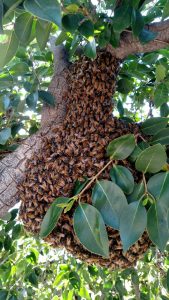
Our number one priority is to keep your family, pets, the public, and our specialists safe during a removal. Africanized bees become hyper-defensive to protect their hives and will attack when threatened. Desert Swarm will only perform live removals of newly-arrived & un-established swarms that have not moved inside of a structure. Our specialists always err on the side of caution as we will not put any human or pet life at risk. We do not offer live removals for swarms that are well-established or have already moved into a cavity or structure due to the territorial and aggressive nature of Africanized bees once disturbed. You can rest assured that Desert Swarm will solve your bee problem safely and effectively even if a live removal is not an option!
We are small-scale beekeepers and value honey bees, so if we can perform a life removal safely, we will! All live removals are relocated to our locally managed hives. Please contact us for more details on the type of live removals we will consider!





